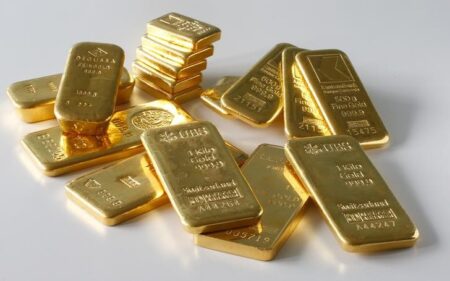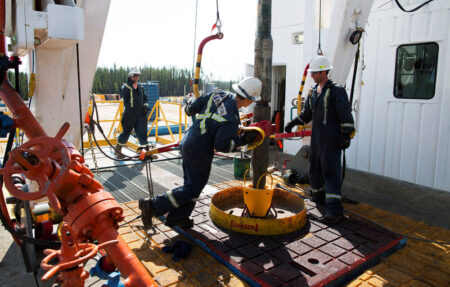Investing.com – The Federal Reserve said it a day ago and the Commerce Department has just proven it: There less chance of a U.S. recession happening as the days go by — unless, of course, the oil price spike pushes the central bank to a new round of aggressive rate hikes that will slow the economy.
U.S. crude finally got back to above $80 a barrel on Thursday, reprising highs from April, after gross domestic product growth for the second quarter came in at a surprisingly high 2.4% versus market expectations for just 1.8%.
The advance estimate by the Commerce Department, the first of three for each quarter, was further proof that the world’s largest economy would likely dodge a recession despite many analysts on Wall Street being certain for months that a major slowdown was inevitable. The Fed itself was no longer forecasting a recession, given the robust pace of recent growth, Chairman Jerome Powell said Wednesday after the central bank returned to the path of monetary tightening with a quarter point rate hike after a pause in June.
The second quarter estimate for U.S. GDP — along with lower weekly employment claims and positive durable goods data — was just the deal needed by oil longs trying to get U.S. crude to make the leap this week to $80 territory after it had stayed above $75 since Friday.
The now near two-month rally in oil has its roots in production cut rhetoric that the Saudis and others in the Organization of the Petroleum Exporting Countries have drummed up since June.
On top of cuts pledged by OPEC+, which groups 23 nations altogether, the Saudis have committed to cut an additional million barrels per day. Despite talk of extreme tightness in global oil markets from all those supply reductions, U.S. stockpiles saw smaller than expected draws last week for a second week in a row.
But oil bulls appeared unfazed by the U.S. inventory data, saying the cuts will eventually show in upcoming weekly numbers.
“Overall, oil fundamentals look solid,” Scott Shelton, energy futures broker and analyst for ICAP (LON:) in Durham, North Carolina, said in a commentary issued early Thursday. “I don’t see a lot out here …to hold back oil prices going higher.”
At Thursday’s close, the front-month contract for New York-based West Texas Intermediate, or , settled at $80.09 per barrel, up $1.31, or 1.7%, on the day after peaking earlier at $80.61, its highest since April 19.
If the U.S. crude benchmark keeps to its momentum — and there’s little to suggest why it wouldn’t — it would finish up for a fifth straight week that has already delivered a gain of 13% into the pocket of oil bulls for all July.
The front-month for London-based settled at $84.24 per barrel, up $1.32, or 1.6%, on the day after a three-month high at $84.51. Like WTI, Brent was headed for a fifth weekly gain that already put the global crude benchmark up 12% for this month.
The only immediate downside to oil came in the form of the higher , which continued its rebound for a second straight week from the 15-month lows hit earlier in July.
Longs plowed into the dollar — whose rise is always a negative to commodities priced in the currency — after the European Central Bank signaled that its rate hike on Thursday might be its last for the year ahead of a pause likely to begin in September.
The ECB’s stance hammered the and pushed the dollar up instead, especially after the Fed suggested a day earlier that it would keep rates restrictive for as long as needed to bring U.S. inflation, now hovering at 3%, back to its long-term target of 2%.
But some say the oil rally could bring its own antidote to the market if inflation spiked as a result, forcing the Fed and ECB to pile on more rate hikes that would eventually hurt demand across the board — including in oil.
“There are, of course, an abundance of upside risks to the inflation data from the economy continuing to display significant resilience, as we’ve already seen this year, or fresh energy or food price shocks,” said Craig Erlam, analyst at online trading platform OANDA.
Read the full article here












